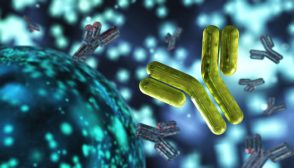Definition
noun, plural: zwitterions
A molecule carrying both a positive and a negative charge
Supplement
A zwitterion is a molecule that has both positive and negative charges. It is made up of two (or more) functional groups. One of its components has a positive charge and another one with a negative charge. Because of this, the net charge of a zwitterion is zero. The presence of the opposing charges in the same molecule balances each one out resulting in the molecule becoming electrically neutral.
Examples of zwitterions are amino acids. An amino acid has two functional groups: amine group and a carboxylate group, along with a side chain group (R group). At pH of 2.2 to 9.4, the amino acid is in a zwitterion state (i.e. with a negative carboxylate group and a positive α-ammonium group) and therefore with a net zero charge. However, at pH below 2.2, the amino acid would have a net charge of +1 as the predominant form would have a positive α-ammonium ion and a neutral carboxylic acid. At pH above 9.47, it would have a net charge of -1 as the predominant form would have a negative carboxylate and neutral α-amino group.
Word origin: German zwitter (“hermaphrodite”) + ion
Synonym(s):
- dipolar ion
See also:







